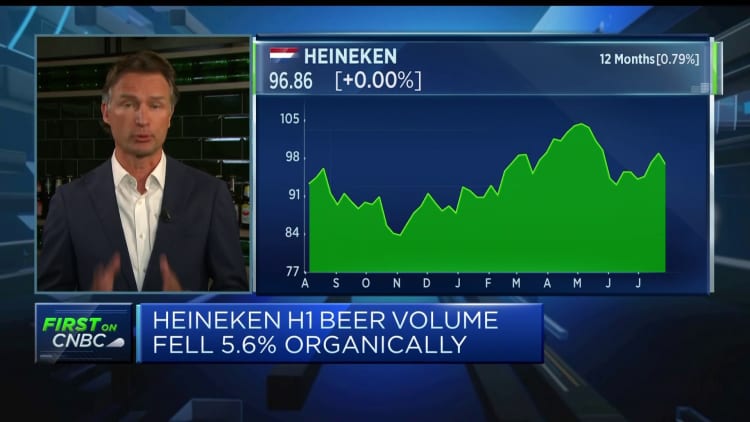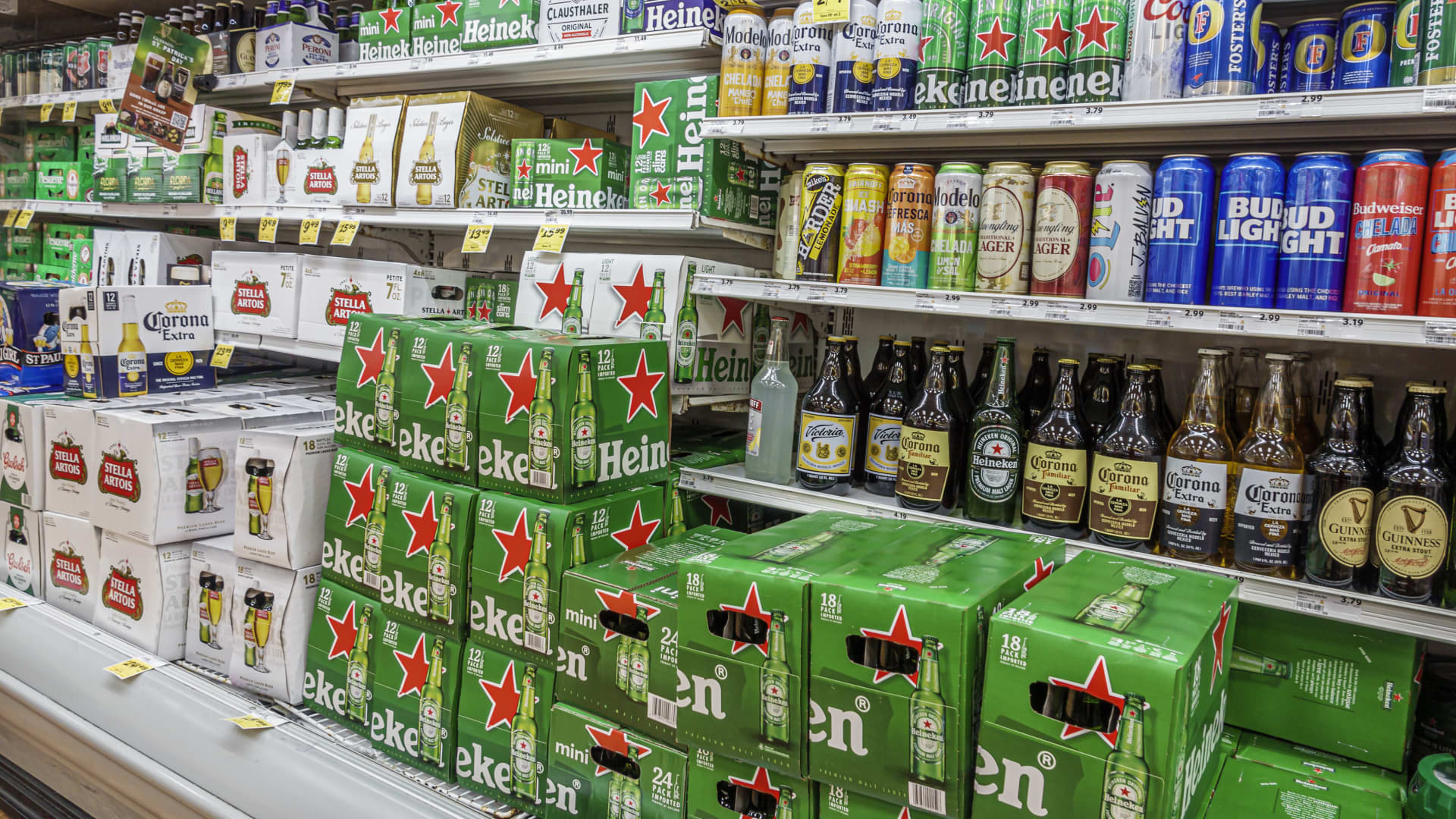Beers on display at Winn-Dixie grocery store in Miami, Florida.
Jeff Greenberg | Universal Images Group | Getty Images
Heineken’s chief executive says the company has learnt lessons from the social media controversy around a campaign for rival beer Bud Light — but still believes businesses should stand up for their “values.”
“Particularly in the Western world, we do see a lot of polarization in society. And that’s affecting all players, all actors in society, also businesses and also brands,” Dolf van den Brink told CNBC’s “Squawk Box Europe.”
“You have to be thoughtful, you have to be balanced. And at the same time, you need to stand for your values and your principles. And we try to do that to the best of of our abilities,” he continued. “So far, I’m proud of how our brand teams across our operating companies are navigating this new world.”
Bud Light lost its spot as the top-selling beer in the U.S. in May, after conservatives boycotted the brand following a brief product placement deal with transgender social media influencer Dylan Mulvaney. Bud Light sales fell 24.6% in the period year-on-year, according to NielsenIQ data from consulting firm Bump Williams.
Bud Light is owned by Belgium’s Anheuser-Busch InBev, the world’s biggest brewer, which will report its second-quarter results on Thursday. The furore has garnered political attention, with Florida Gov. Ron DeSantis calling for a probe into whether the company breached its duties to shareholders.
AB InBev has also been criticized for failing to stand behind Mulvaney, amid wider debate over whether corporations will continue to back social or political causes. Industry groups including Outvertising have called on brands not to back away from campaigns and partnerships supportive of the LGBTQ+ community over fears of a similar backlash.

Heineken’s Dolf van den Brink said advertising remained crucial in a challenging market environment, and that it had increased marketing spend by 200 million euros ($221 million) in the first half.
Heineken on Monday cut its 2023 profit growth forecast, as it reported a 5.6% decline in beer sales and a 8.8% like-for-like fall in operating profit, coming in below a company-compiled consensus forecast.
“We always knew the first half of the year would all be about the inflationary pressures on our input costs, particularly in Europe which is an important region to us,” van den Brink told CNBC.
“We frontloaded the year with pricing, as such as we expected some volume softness in the beginning of the year. Overall we are quite happy with our strong revenue growth, we grew revenue between nine and 10% in three out of four regions.”
In a note, analysts at RBC Europe called the results the “worst set … we’ve had so far,” highlighting the forecast misses in the Americas and Europe and significant challenges in Asia supply chains and sales.

